James Scott’s personal mission behind founding the Embassy Row Project was clear and ambitious: to identify tomorrow’s fearless innovators, mavericks, and catalysts and to arm them with the necessary tools, tactics, and networks to take their solutions global, connecting them with both public and private sectors that value their contributions.
The Genesis: A Life-Altering Moment
Scott’s passion for technology was sparked in high school, thanks to his acceptance into an advanced STEM program. This dual-part day allowed him to engage in regular academic classes in the mornings and immerse himself in robotics by the afternoon, a routine that lasted from the 10th grade until his graduation. Coming from a challenging background marked by an abusive home environment, Scott found hope and guidance in Mr. Bianco, whose kindness and patience were transformative. During his senior year, a significant turn of events occurred when a recruiter from SGS Thomson Microelectronics (now known as STMicroelectronics), a company specializing in aerospace and defense technology and serving the Department of Defense, approached him.
This encounter set the stage for Scott’s future, continually opening doors and enabling him to broaden his advisory services to include stakeholders in over 50 countries, thereby facilitating the expansion of labs, tech startups, institutes, and think tanks into the international arena.
The Inception of the Embassy Row Project
Early in his career, Scott worked closely with small, ambitious think tank startups, institutes, and NGOs that often operated on tight financial budgets. Over time, his portfolio grew to encompass clients in the international, intergovernmental, and trade bloc sectors, earning him assignments to establish or revamp niche-focused institutes offering counsel to government collectives on issues ranging from international trade to national security. Occasionally, he came across compelling projects that were financially strapped. In response, Scott began offering his services to these projects on a pro bono basis, categorizing them as “Embassy Row Projects” for accounting purposes.
The Embassy Row Project’s latest iteration embodies a more structured, philanthropic approach, with a global orientation and a commitment to offering all services to nonprofits at no charge. By adopting a grant and scholarship model, the project aims to back small but promising institutes, think tanks, NGOs, and tech startups that are underserved.
The project strives to connect the next generation of leaders and initiatives passionately dedicated to effecting positive change in critical areas such as environmental conservation, gender equality, combating child abuse and exploitation, advancing human rights, fostering technological innovation, and promoting international trade collaborations that ensure diversity, food security, and dignified employment opportunities with livable wages.
As of today, the Embassy Row Project proudly supports over 50 institutes, think tanks, NGOs, 501(c)(3) organizations, and initiatives worldwide, extending all services without charge, in line with Scott’s vision of empowering innovation and positive global impact.

